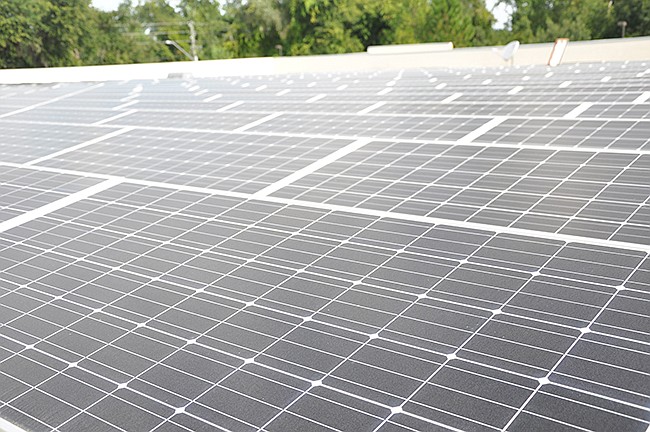- July 26, 2024
-
-
Loading

Loading

Winter Park residents wanting to limit their home’s dependency on fossil fuels now have a safer and cheaper option: solar power co-operative groups.
Central Florida Solar Advocates, a co-op located within Winter Park, is offering homeowners an easier alternative to making their home more environmentally friendly. By joining, members will be able to install solar panels on their homes at a discounted price.
“I think the people interested in going green might even need to watch their pocket books. The price is finally getting into a territory that is achievable for [many] more people,” co-founder of Central Florida Solar Advocates, Mary Dipboye, said.
Falling prices for solar energy is the biggest reason more people will be more interested in solar power now than they have in the past, Dipboye said. The incentive is higher for people who expect to own their home for a long period of time because they can sell their energy back to the power company.
The buyback of power by the electric utility is expected to take about eight to 12 years to break even on cost. Once a homeowner has sold enough of their solar power back into the grid, they will have reached net zero on their power costs and essentially have free power for the remaining life of their panels, which are guaranteed to last 25 years, Dipboye said.
Homeowners like Martha Kuhn see the incentive that Dipboye and Central Florida Solar Advocates offers. After hearing her speak at an introductory meeting to inform Winter Park residents of the co-op on June 25, Kuhn became interested in what the group had to offer.
“I’m thinking very seriously about it,” she said. “I would think that if residents wanted it then they should do it.”
At least 20 homeowners are needed to sign with Central Florida Solar Advocates in order to discuss a bulk discount from solar power companies and contractors. Right now 12 have signed up, Dipboye said.
Another initiative Dipboye hopes to achieve through her solar crusade is to educate the public on what she thinks are misunderstandings of the renewable resource.
Converting to solar energy does not mean that the home is disconnected from the power grid. If a storm or hurricane causes the power to shut off in an area where a solar powered home is located, then that home will lose power as well.
Winter Park also has an enemy of solar power that could affect some homes compatibility for installing the panels: trees. The panels do not work in shaded areas, so a home would have to qualify beforehand to ensure it meets the requirements.
“There is a big issue with trees,” said Robert Reedy, director of Solar Systems Research Division. “We love the trees and we want to keep the trees. That said, easily half the homes in an area like this are capable of generating significant energy.”
While this could be a problem for some homeowners who enjoy Winter Park’s towering oak trees, it mainly depends on whether the roof is positioned at the right angle to absorb sunlight, Reedy said.
Members of Winter Park’s city government are also familiar with the co-op’s solar power initiative, and its potential hit on the city’s electric revenue. Assistant Director of Building and Sustainability Kris Stenger said that he supports solar power, though it will eventually affect the revenue gained by Winter Park’s electric utility.
“Ultimately the utility would be affected in the fact that there would be less kilowatt hours being sold,” Stenger said.
Central Florida Solar Advocates is expecting to reach its goal of 20 members and start the bidding process in August. If everything goes to plan, Dipboye hopes that instillation will begin in the fall and be completed by the end of this year.